Filter by

The state of peacebuilding in Africa : lessons learned for policymakers and p…
This open access book on the state of peacebuilding in Africa brings together the work of distinguished scholars, practitioners, and decision makers to reflect on key experiences and lessons learned in peacebuilding in Africa over the past half century. The core themes addressed by the contributors include conflict prevention, mediation, and management; post-conflict reconstruction, justice and…
- Edition
- -
- ISBN/ISSN
- 9783030466350
- Collation
- xix, 431 p.; ill
- Series Title
- -
- Call Number
- 327.172096 THE t
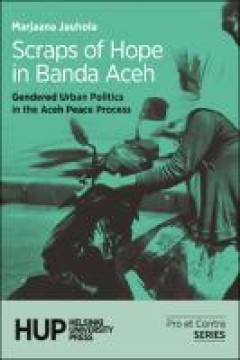
Scraps of Hope in Banda Aceh: Gendered Urban Politics in the Aceh Peace Process
Scraps of Hope in Banda Aceh examines the rebuilding of the city of Banda Aceh in Indonesia in the aftermath of the celebrated Helsinki-based peace mediation process, thirty years of armed conflict, and the tsunami. Offering a critical contribution to the study of post-conflict politics, the book includes 14 documentary videos reflecting individuals’ experiences on rebuilding the city and fol…
- Edition
- -
- ISBN/ISSN
- 9789523690172
- Collation
- xiii, 284p.: ill.
- Series Title
- Pro et Contra series
- Call Number
- 323.340 JAU s
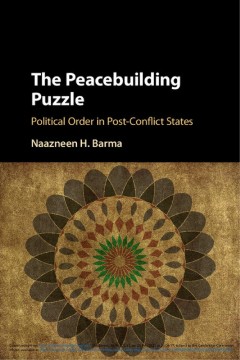
The peacebuilding puzzle : political order in post-conflict states
Transformative peace operations fall short of achieving the modern political order sought in post-conflict countries because the interventions themselves empower post-conflict elites intent on forging a neopatrimonial political order. The Peacebuilding Puzzle explains the disconnect between the formal institutional engineering undertaken by international interventions, and the governance outcom…
- Edition
- -
- ISBN/ISSN
- 9781316718513
- Collation
- xiv, 265p. : ill.
- Series Title
- -
- Call Number
- 355.357 BAR p
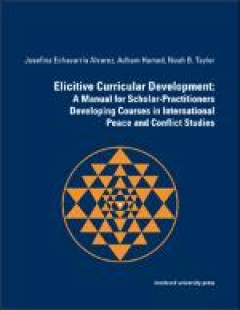
Elicitive curricular development: a manual for scholar-practitioners developm…
The Elicitive Curricular Development Manual (ECDM) is a systematic collection of experiences and lessons identified in academic contexts around the world in Austria, Cambodia, Colombia, Brazil, Ethiopia and Iraq. The ECDM reflects core elicitive principles such as the importance of a focus on relationships, looking beyond the episode of conflict, collaboration, communication and local knowledge…
- Edition
- -
- ISBN/ISSN
- 9783903187795
- Collation
- 60p.: ill.
- Series Title
- -
- Call Number
- 378 ALV e

Rising powers and peacebuilding : breaking the mold?
This edited volume examines the policies and practices of rising powers on peacebuilding. It analyzes how and why their approaches differ from those of traditional donors and multilateral institutions. The policies of the rising powers towards peacebuilding may significantly influence how the UN and others undertake peacebuilding in the future. This book is an invaluable resource for practition…
- Edition
- -
- ISBN/ISSN
- 9783319606217
- Collation
- xv, 276p. : ill.
- Series Title
- -
- Call Number
- 327.172 RIS r
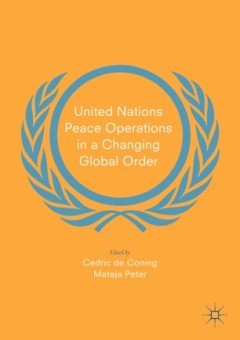
United Nations peace operations in a changing global order
This open access volume explores how UN peace operations are adapting to four trends in the changing global order: (1) the rebalancing of relations between states of the global North and the global South; (2) the rise of regional organisations as providers of peace; (3) the rise of violent extremism and fundamentalist non-state actors; and (4) increasing demands from non-state actors for greate…
- Edition
- -
- ISBN/ISSN
- 9783319991061
- Collation
- xxv, 334p. : ill.
- Series Title
- -
- Call Number
- 341.584 UNI u
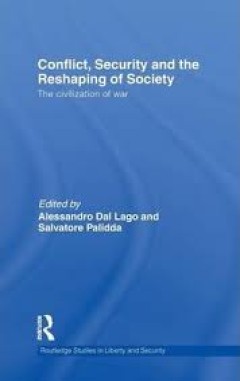
Conflict, security and the reshaping of society: the civilization of war
This book is an examination of the effect of contemporary wars (such as the 'War on Terror') on civil life at a global level. Contemporary literature on war is mainly devoted to recent changes in the theory and practice of warfare, particular those in which terrorists or insurgents are involved (for example, the 'revolution in military affairs', 'small wars', and so on). On the other hand, toda…
- Edition
- -
- ISBN/ISSN
- 9780415570343 (hardcover)
- Collation
- ix, 227 p. ; 24 cm.
- Series Title
- Routledge studies in liberty and security
- Call Number
- 303.66 DAL c
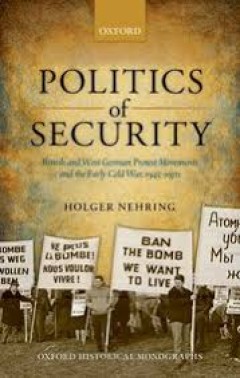
Politics of security: British and West German protest movements and the early…
The Politics of Security tells the story of how people experienced the cold war as a war. It is about the impact of the cold war on political cultures. This crucial issue is often forgotten in historical memory. In particular, the book follows British and West German anti-nuclear-weapons activists in their attempts to campaign for and create security after the destruction of the Second World Wa…
- Edition
- First edition.
- ISBN/ISSN
- 9780199681228
- Collation
- xiv, 342 pages : illustrations (black and white) ; 23 cm.
- Series Title
- Oxford historical monographs
- Call Number
- 322.4094109045 NEH p
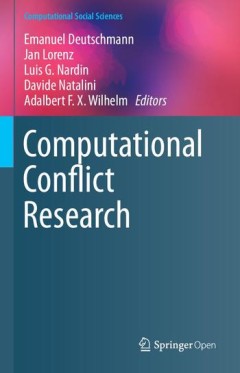
Computational conflict research
This open access book brings together a set of original studies that use cutting-edge computational methods to investigate conflict at various geographic scales and degrees of intensity and violence. Methodologically, this book covers a variety of computational approaches from text mining and machine learning to agent-based modelling and social network analysis. Empirical cases range from migra…
- Edition
- -
- ISBN/ISSN
- 9783030293338
- Collation
- xviii, 264p. : ill
- Series Title
- -
- Call Number
- 300.00285 COM c
 Computer Science, Information & General Works
Computer Science, Information & General Works  Philosophy & Psychology
Philosophy & Psychology  Religion
Religion  Social Sciences
Social Sciences  Language
Language  Pure Science
Pure Science  Applied Sciences
Applied Sciences  Art & Recreation
Art & Recreation  Literature
Literature  History & Geography
History & Geography